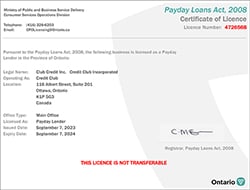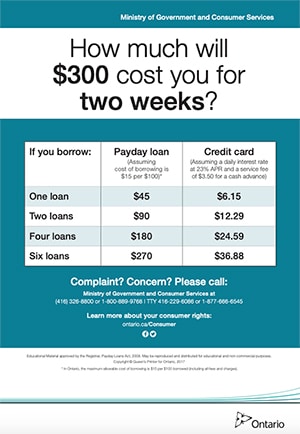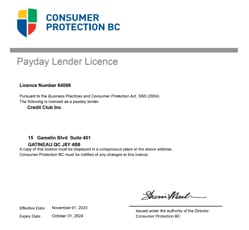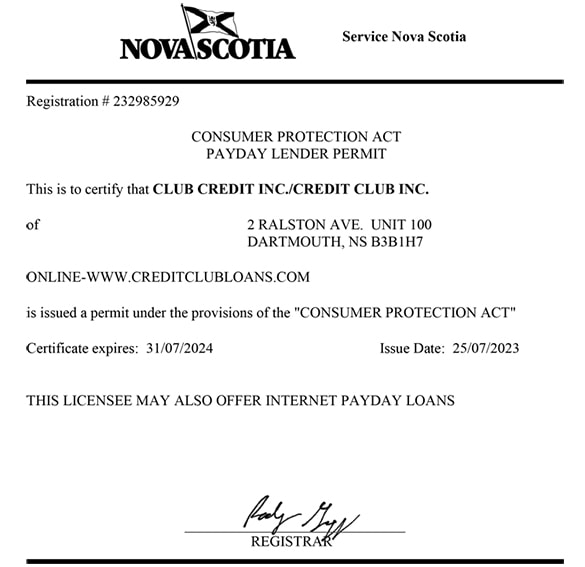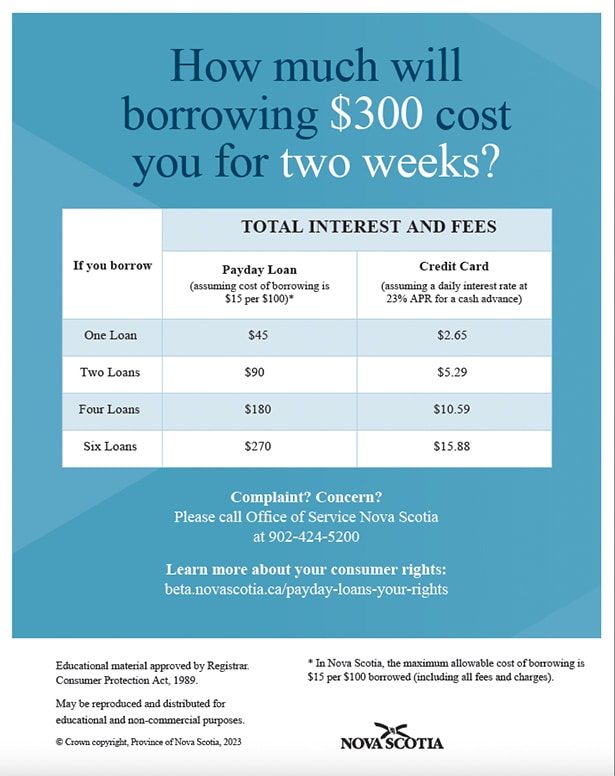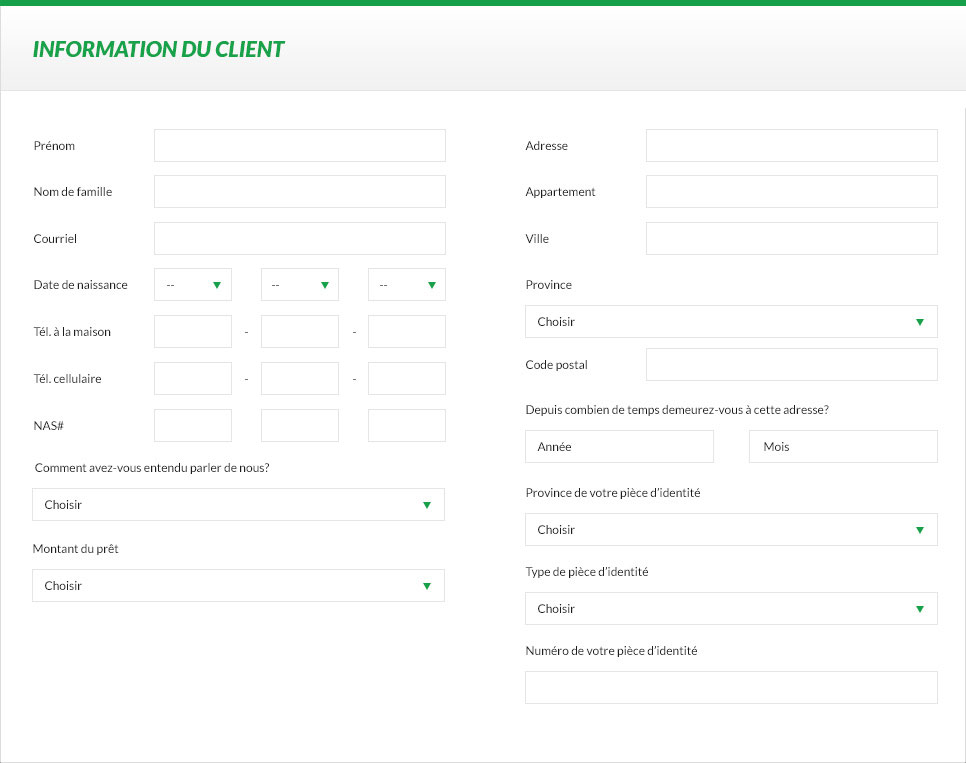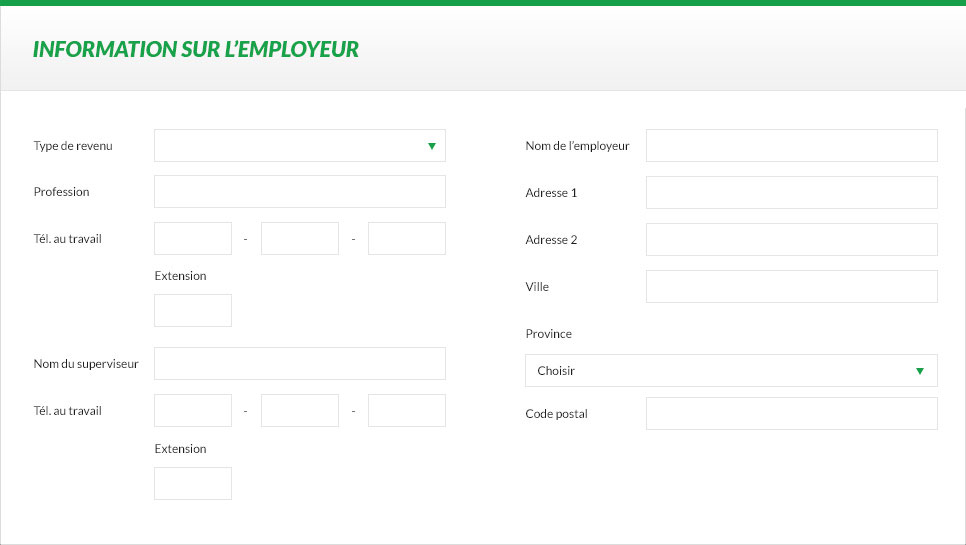What To Do When You Can't Pay Your Loans
It's not uncommon in today's fast-paced and uncertain society for individuals to experience extreme financial hardships. This can be due to medical expenses, termination of employment, or other unpredicted occurrences.
In such financially tasking cases, the common approach is to take a loan, whether it's a traditional secured bank loan or an unsecured loan like a payday loan or even your credit card. However, paying back can be tricky, especially if the root cause of your financial misfortune hasn't been fixed.
Rather than succumbing to panic or restlessness, this article will provide a few strategies for when you're unable to pay back your loan. We aim to remedy your situation and set you back on your path to financial stability.
Read on!
Options for When You Can't Repay the Loan
Whenever you're stuck repaying a loan, whether secured or unsecured, you have to assess the options available to pick the most practical method for your loan type. Currently, five solutions are bound to produce satisfactory results.
These include
1. Contact the Lender
Once you foresee that you may be unable to repay the principal within the designated repayment period, communicate with the lender immediately. This recommendation applies whether you took loans from a bank, family and friends, payday loan companies, and even your credit card company.
Contacting the lender to work out a loan deferment or forbearance can buy you time and save you a lot of headaches. If successful, lenders may be able to remove a portion of the monthly payment, extend the repayment date, offer set late fees, or try other options.
Note that lenders want their money back and would rather work with you and get paid than call multiple times, send letters via a lawyer, or even take legal action in court. Also, your credit rating may still suffer if this method succeeds; however, it's a worthwhile cost for putting the payments behind you.
2. Structure a Repayment Plan
Creating a repayment plan can alleviate some of the mental stress associated with completing your loan as well as give a clear picture of the task ahead. Begin this process by making a list of all debt owed, including the balance, terms, and interest rate.
Afterward, list out all available assets to pay down the debt, including home equity (if available), personal line of credit, etc. Next, outline how these assets will pay off the loans, which can involve taking out a low-interest personal loan or home equity loan to satisfy the outstanding debt.
Taking a loan to cover a previous loan is a common concept known as Debt Consolidation. It's most effective when you combine all debt into one large expense and take a low-interest loan to pay off the cost.
3. Prioritise Your Payments
In situations where you have multiple loans like a payday loan, student loan, car loan, and more, you may need to pay according to their priority. In other words, take a list of all loans you're currently paying and select which ones are the most important.
For example, some financial experts will recommend keeping payments on your home and car loans, while stopping payments on unsecured loans like credit cards and payday loans. This recommendation is based on the fact that failing to pay the loans on your car and house can cause both to be repossessed, further complicating your situation.
When prioritizing which loans to pay, choosing the ones that will have the most adverse effect on your life is left unpaid. Once your list is complete, make a conscious choice to pay off the top ones before moving to the less pressing loans.
4. Take a Secured Loan
A Secured Loan requires you to pledge collateral before the bank can provide you with the desired loan. Banks take legal possession of this collateral whenever you're unable to repay the loan you took on time.
You can use this factor to repay your debt before it begins to affect your credit score, as a low credit score will affect your ability to secure a loan. Essentially, you first create a list of all debt owed alongside their cost.
Afterward, you take a Secured Loan equivalent to the cost of all debt summed together, allowing you to repay your previous loans successfully. This leaves you with a secured loan to repay, which you can either rosy with the time given or let the bank take the asset you pledged as collateral.
Note that if you let the bank take your collateral, it will ultimately free you from debt; unfortunately, your credit score will decline, affecting your ability to take loans in the future. However, a lower credit score may have been inevitable as your st approaches the due date with no repayment, making this method a worthwhile strategy.
5. Seek Financial Counselling
Struggling with debt, irrespective of the type of loan, can become mentally overwhelming, making it difficult to create solutions for the late payments. In this case, seeking help via financial counseling is a good idea as they can assist you with the necessary information to remedy your situation.
Essentially, a financial counsel can produce debt management plan tailored to your situation thanks to their experience and training for such problems. Thankfully, scheduling a meeting with this consultant costs little and pays off significantly.
Your counselor may recommend a loan management plan deferment or another course of action. Regardless, their outside perspective may be sufficient in rectifying your debt issue and getting you back on your feet again.
6. Declare Bankruptcy
Bankruptcy is the legal term for when an individual or business is unable to repay any debt owed and is seeking assistance from the federal government. In this case, Bankruptcy grants the borrower a fresh start when the loan is beyond their capacity.
Note that one can only file for Bankruptcy when they've exhausted all possible options for meeting the previously agreed upon debt settlement terms. Therefore, if you've tried all you can to pay your mortgage payments to no avail and are due for foreclosure, declaring bankruptcy can save you from losing your home.
While the opportunity to start afresh sounds relieving, declaring bankruptcy comes with its drawbacks. For example, a Chapter 7 bankruptcy stays on your credit record for 10 years, and a Chapter 7 bankruptcy remains for seven years
Also, the type of bankruptcy declared limits you on how long before you can declare bankruptcy again. For example, a Chapter 7 bankruptcy prevents you from declaring Bankruptcy within 8 years.
Conclusion
It's not uncommon for people to immediately bury their heads in the sand whenever they struggle with repaying a debt. However, we recommend taking charge of the situation by either talking to your lender, paying off with a secured loan, or meeting a professional financial counselor.
Irrespective of the option you choose, ensure to implement them as soon as possible. This recommendation is based on the fact that every late repayment affects your credit score, making it more difficult to get crucial loans in the future.
Loan Repayment FAQs
What are the effects of missing loan payments?
Late and missed loan payments remain on your credit score for six years once reported by the financial institution. This problem makes it more difficult to take another loan in the future, which you may need for a car, house, education, etc.
When can you declare bankruptcy?
Declaring bankruptcy allows the law to intervene in your financial situation and erase the debt you owe, allowing you to start afresh. However, you shouldn't declare bankruptcy until you've exhausted all options possible for repaying the loan. Following the recommendation allows the court to rule in your favor and clear the debt.
Does bankruptcy clear all debt?
While bankruptcy can give you a clean financial slate free of debt, it doesn't completely free you of responsibilities. Essentially, suppose you have a secured loan with collateral, declaring bankruptcy won't stop the lender from repossessing the asset you presented. Therefore, it's safe to conclude that bankruptcy eliminated debts but doesn't remove liens.
Should you consolidate your debts?
Debt consolidation has existed for decades as it involves taking a larger loan to pay off other pressing debts during a loan default. This process transforms your repayment into a more manageable piece with a longer repayment period
However, debt consolidation only makes sense if you still qualify for a low-interest loan. If your debt already drops your credit score, consider exploring other repayment options as debt consolidation may be ineffective.
What's the best way to get out of debt?
Debt is undoubtedly overwhelming, and the best option is to first contact the lender and request a deferment or forbearance. If successful, the repayment period will be extended, giving you more time to the loan.
On the other hand, consider seeking help from a financial counselor as their professional training and experience may be sufficient. Essentially, these professionals can help you build a budget, prioritize your debt, or maximize your cash flow.
Can a debt collector make someone else pay your loan?
Typically, your friends and families are protected from having to pay for your financial issues. However, if you have a guarantor loan with an unsettled payment, the guarantor becomes responsible for the payment.
However, guarantors should only be a last resort; that's why contacting your lender immediately is a priority that fixes such a problem.





